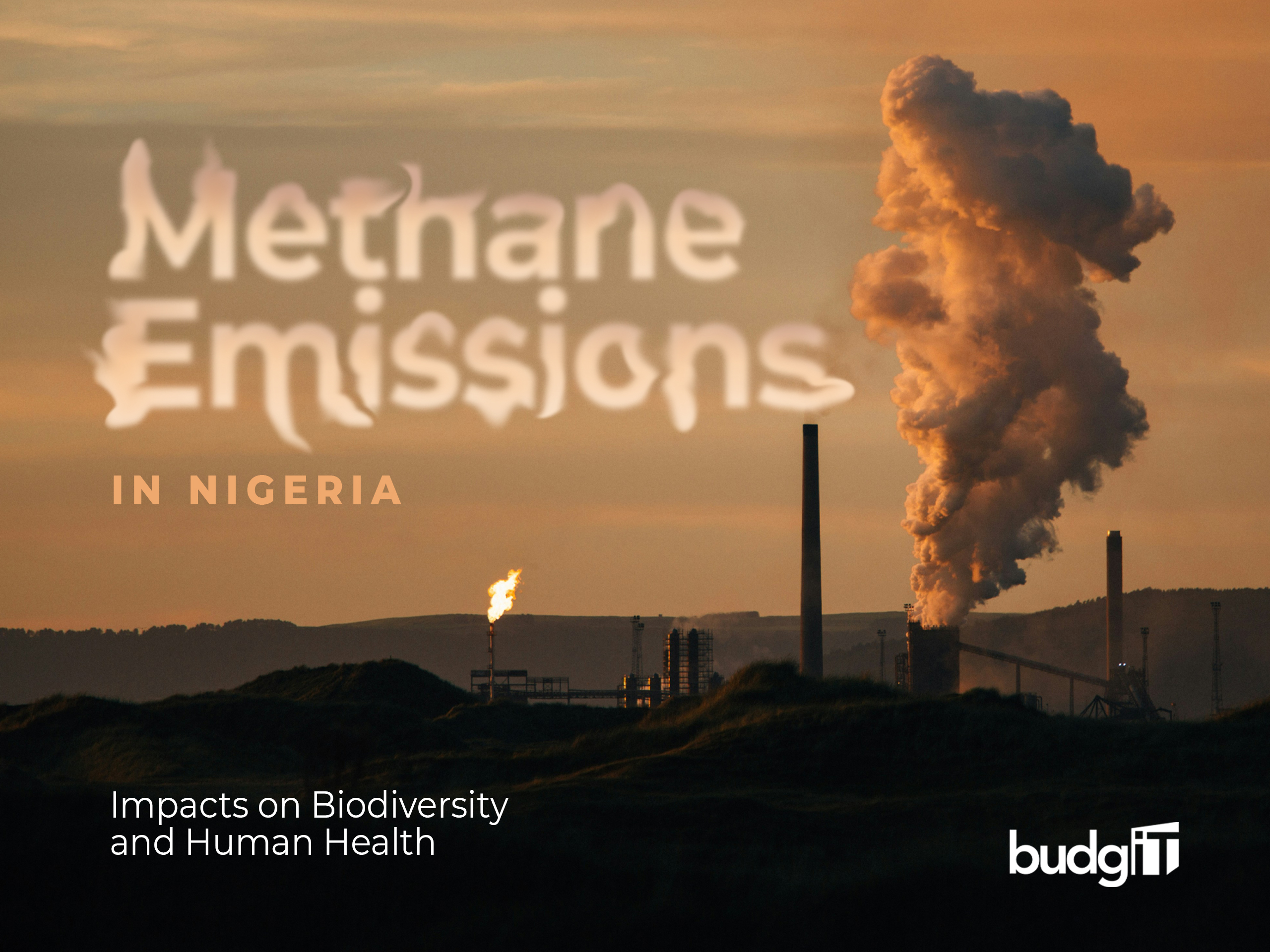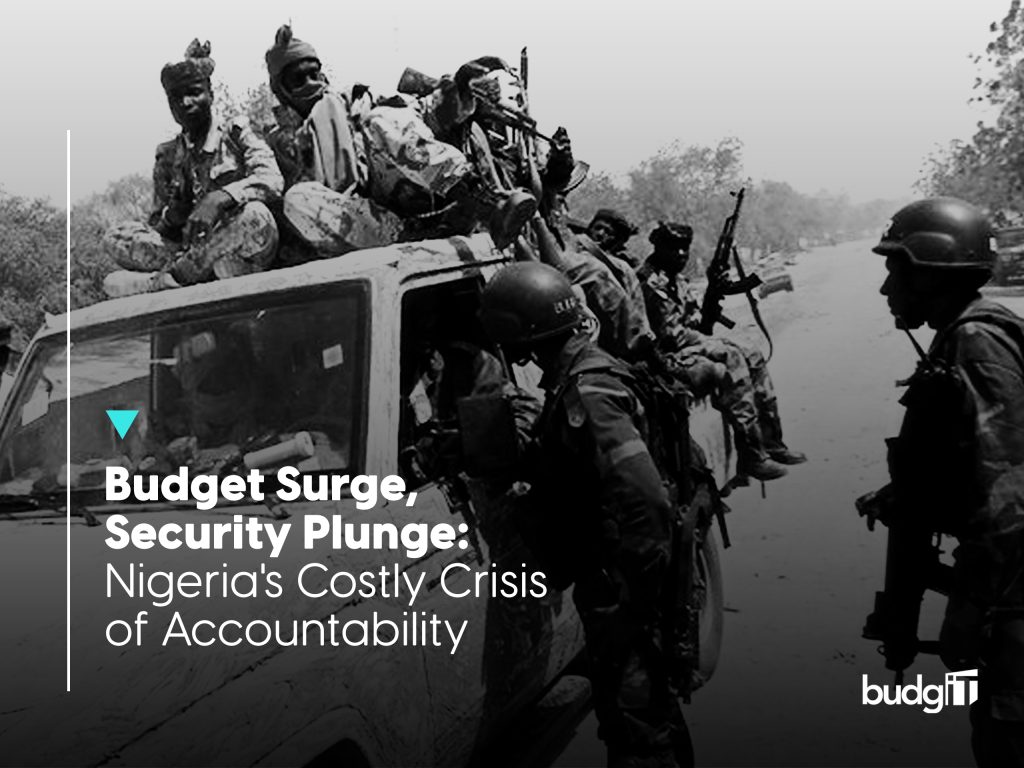Imagine going to the hospital because you’re not feeling well. After several tests, you’re diagnosed with a condition that doesn’t seem connected to your lifestyle or diet. The same land that once produced healthy crops and clean air now struggles to sustain life. The seasons feel off, the soil is drier, and the harvests are weaker. The cause? Methane: an invisible, odourless gas. Though you can’t see or smell it, methane is a potent greenhouse gas that’s silently harming your health and changing the environment around us.
In a country like Nigeria, where oil and gas production fuels the economy, methane is routinely escaping into the air through venting, flaring, and leaks, collectively known as fugitive emissions. Yet, the public pays little attention to this. Methane may feel like a distant issue, but its effects are dangerously close, touching our ecosystems, our health, and our daily lives.
What Is Methane, Anyway?
Methane (CH₄) is a potent greenhouse gas—the second-largest contributor to global warming after carbon dioxide (CO₂). A single molecule of methane traps more heat than CO₂, though it lingers in the atmosphere for a shorter time (7–12 years versus hundreds for CO₂). Human activities contribute around 60% of today’s methane emissions, mainly from agriculture, fossil fuel extraction, and waste.
Methane in Nigeria: A Quiet Crisis
In Nigeria, methane is like that uninvited guest who crashes an owambe. It’s unpleasant to the environment and health and can be found everywhere, especially in the Niger Delta, where the oil and gas industry is the biggest emitter. Gas flaring, the burning of excess gas during oil extraction, releases methane and other pollutants into the atmosphere. Add ageing pipelines, routine venting, and poor infrastructure, and the emissions climb even higher. The World Bank ranks Nigeria among the top countries globally for gas flaring.
But it’s not just oil. Livestock farming, rice cultivation, landfills, and biomass burning also add methane to our air. Trash decomposing in poorly managed urban dumps and the burning of forests and agricultural waste in rural areas contribute significantly. And while these sources may seem varied, their impact is focused and alarming, particularly on biodiversity and human health.
Biodiversity on the Brink
Methane-driven climate change is transforming Nigeria’s environment. Rising temperatures and shifting rainfall patterns are altering habitats, making survival harder for many native species. In Nigeria, where a major source of income and employment includes fishing, wetlands and forests, fish, birds, and mammals are losing their natural homes. Coastal regions, such as the Niger Delta, are particularly vulnerable. Sea level rise and increased flooding, worsened by methane’s role in warming, are degrading ecosystems and threatening both aquatic and terrestrial life.
Moreover, methane contributes to the formation of ground-level ozone, a pollutant that damages crops and native plants. This weakens the ecosystem’s natural balance and reduces agricultural productivity, on which millions of Nigerians depend. Reduced crop yields and stressed vegetation means fewer food sources for wildlife and humans alike, leading to both food insecurity and biodiversity loss.
Health Risks: The Invisible Threat to Life
The health impact of methane isn’t always direct, but it’s deeply concerning. Methane plays a key role in forming ground-level ozone, a significant irritant that can exacerbate respiratory conditions such as asthma and bronchitis. In polluted cities like Lagos and Port Harcourt, this is a growing health crisis.
In the Niger Delta, communities near oil facilities face even worse dangers. Methane leaks often come with other toxic gases and volatile organic compounds (VOCs). These are linked to cancer, neurological issues, and developmental disorders in children. Studies have shown an increase in cases of respiratory illnesses and skin conditions among residents near gas flaring sites.
Indirectly, methane-fueled climate change is also creating extreme heat waves, increasing the risk of heat stroke, heart problems, and waterborne diseases like cholera. As farming becomes harder and food prices rise, more people, especially children in rural areas, face malnutrition.
From Pledges to Action
Nigeria has made some promising commitments towards combating methane emissions:
- Global Methane Pledge (2021): Aims to reduce emissions by 30% by 2030.
- Short-lived Climate Pollutants (SCLPs) Plan: Targets 50% reduction in methane leaks and fugitives by 2030.
- Nigerian Gas Flare Commercialisation Programme (NGFCP): Seeks to turn flared gas into energy.
Major oil companies like Shell, Chevron, and TotalEnergies are also exploring leak detection and cleaner practices.
However, the reality on the ground tells a different story: flaring persists, enforcement is weak, and many communities, such as Bayelsa, see no improvement. Without transparency, accountability, and community inclusion, these pledges will remain just words.
What Can We Do?
To protect both our environment and our health, here’s what we need:
- Enforce Environmental Laws: Agencies like NESREA must impose stricter penalties and actively monitor emissions.
- Invest in Clean Tech: Oil companies should deploy methane capture and leak detection tools.
- Reform Waste Management: Turn landfills into energy sites using gas capture technologies.
- Support Climate-Smart Agriculture: Help farmers reduce emissions through better livestock and rice farming methods.
- Educate Communities: Raise awareness in host communities about methane’s impact on health and the environment.
- Demand Data Transparency: Push regular updates of emission data and for public access to real-time emission data.
- Leverage Global Support: Access funding and technical help through the Global Methane Pledge.
Methane may be invisible, but its impact is all too real. It’s threatening Nigeria’s wildlife, exacerbating our climate crisis, and impacting crops, rivers, and our health. From the Niger Delta’s struggling fishermen to farmers facing failed harvests in Benue, this is our fight. By cracking down on flaring, embracing clean tech, and raising our voices, we can protect Nigeria’s ecosystems, ensure cleaner air, and secure a healthier future.
The clock’s ticking, but we’ve got the power to act. Talk about methane with your friends, and demand action from leaders and companies. Let’s make methane impossible to ignore and build a greener, healthier Nigeria for ourselves and our generations. If you didn’t know about methane emissions before, well, now you do.



